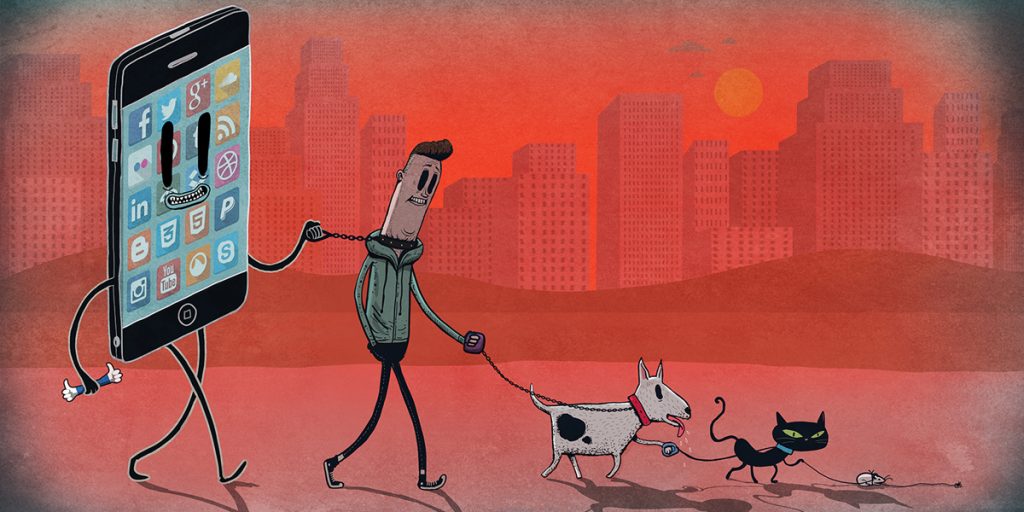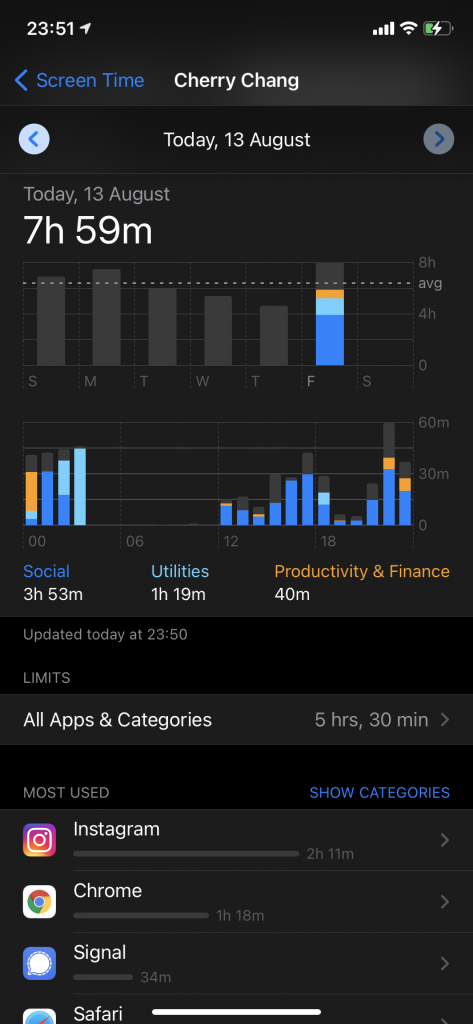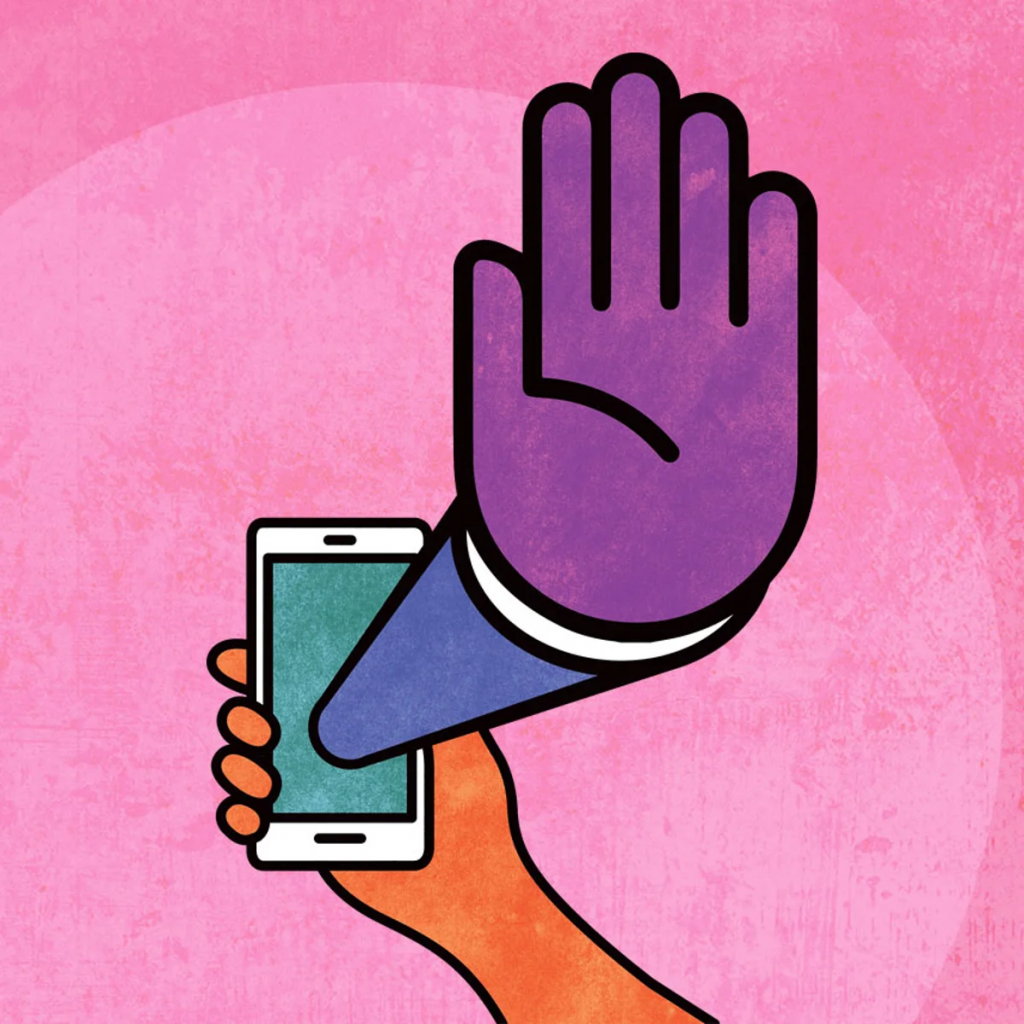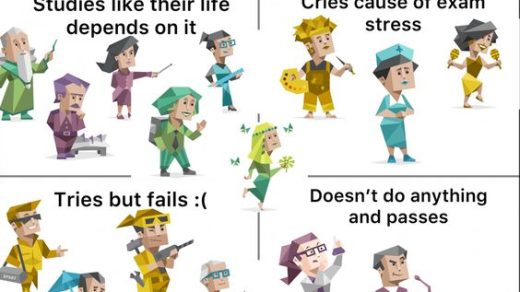I still remember the first time I used a computer…I was around four or five years old. At that time, I only used it to play video games. One of my earliest memories is playing a Mickey Mouse game where I had to help him finish his daily tasks before the time ran out. The bright colors and lively sounds completely grabbed my attention. I played the game every day because I couldn’t eat without it. I can see now that this pattern of strong attachment has come back many times in my life, even as I’ve gotten older.

This attachment changed to social media as I got older. When my classmates asked me about the news, I sometimes pretended to know what was going on, even though I hadn’t read it online. Because of this pressure, I thought my “addiction” got worse when Instagram came out. I remember being completely into my phone. I would take pictures of food and post them right away, as if it were my job to let “everyone” know what I was up to. I also became the person who always knew the latest news, not because I was interested, but because I wanted to keep up with everyone else. This is how society worked: if I didn’t keep up with the news every day, I would fall behind.
This reliance gradually infiltrated my daily habits. I listen to music every day, and I often use it as background noise while I plan what to do with my time. I check my phone automatically on the way to work. I’ve been doing this since I got my first phone. It started out as something harmless, but now it’s a big part of who I am. I feel like I can’t live without it, even though it’s only a small device.
I get anxious and restless quickly when I don’t have my phone to help me plan, organize, and talk to people. It makes me nervous to go more than ten minutes without checking it. This realization has compelled me to acknowledge an uncomfortable truth: I may have cultivated a nuanced yet significant dependency, frequently referred to as nomophobia. Nomophobia, which means “no-mobile-phone phobia,” is the fear or worry of being without a phone. It can feel like losing control when you can’t get to the device because it serves as a planner, a map, and a place to meet people all at the same time. When I’m not with my phone, even for a short time, I feel anxious and uneasy.

The weekly average screen time report is a feature that a lot of phones, including the iPhone. I was shocked the first time I looked at mine. A lot of those hours were spent scrolling through Instagram. I realized how much time I had been wasting on my phone, but I didn’t know how to stop. I tried a lot of different things to “reduce the control of the phone,” like deleting social media, locking screen time, and even putting the phone away. But none of these ways seemed to work for me.

When I first looked at my phone’s weekly screen time report, this truth became very clear. I was shocked to see how many hours I had spent looking at Instagram. I tried to get back control by deleting social media, locking my screen time, or even putting my phone away. Nevertheless, none of these plans worked for me.

I used my phone even more when COVID started. There were times when I spent whole months staring at the screen. I finally understood that this wasn’t the life I wanted. A phone is not the most important thing in life. I began to value the little things I had missed: walking without music, hanging out with friends without checking notifications, and eating with my family without a phone in my hand. These simple things made me remember how much I had missed since I first played that Mickey Mouse game as a kid.
The things I had tried before didn’t work for me. Instead, I learned that being thankful and mindful was the best way to get over this feeling of addiction, not by following strict rules. I felt more relaxed and at ease when I put down my phone and focused on the present moment. I still sometimes fall back into old habits, but I’ve learned that I can gradually stop needing my phone by valuing real-life experiences and trying to find balance.
Source
https://www.iberdrola.com/social-commitment/nomophobia



Recent Comments